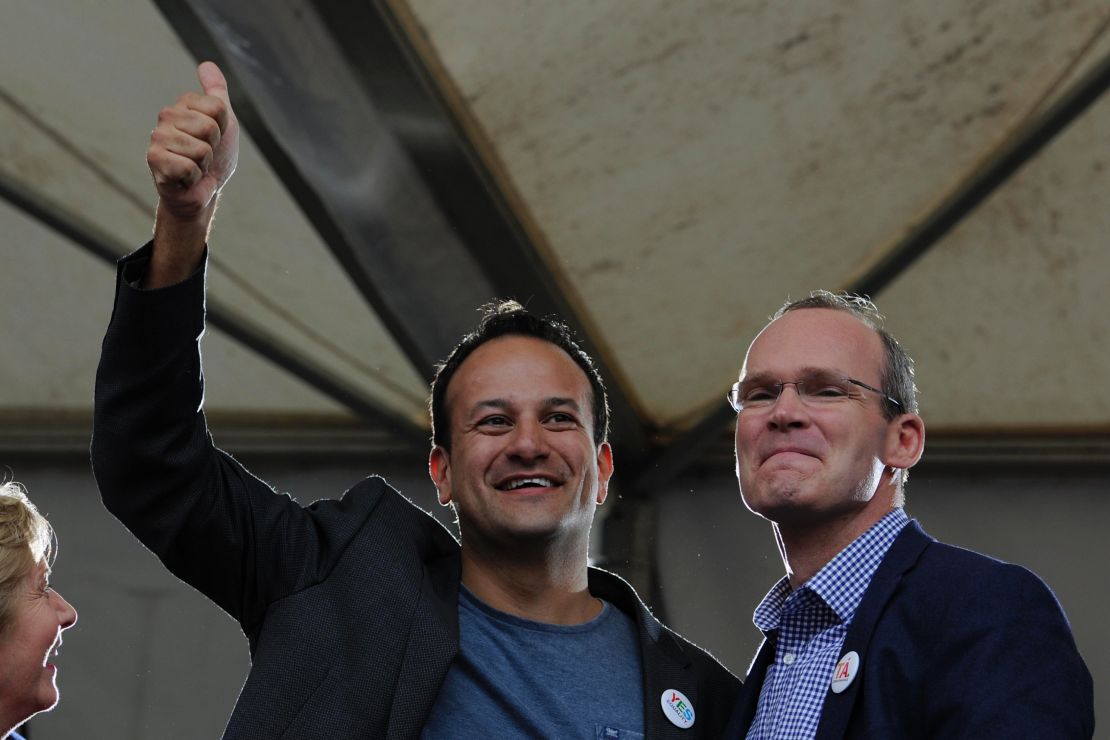British Prime Minister Theresa May has been warned that Ireland will “play tough to the end” over its threat to delay Brexit talks should no solution be found to the Northern Ireland border issue.
Throughout the negotiations, the European Union has been adamant that “sufficient progress” is required over the border issue before any talks on a future relationship between the UK and EU can take place.
May has been given a deadline of December 4 by the EU to introduce further proposals on the three main areas of contention – the Irish border, Britain’s divorce bill and the rights of EU citizens.
Britain has said it will leave both the single market and customs union when it exits the European Union in March 2019 – a move which critics say could lead to a hard border in Ireland.
Phil Hogan, Ireland’s EU commissioner, has urged May to change course and instead ensure that Northern Ireland and Ireland avoid such a scenario.

“If the UK or Northern Ireland remained in the EU customs union, or better still the single market, there would be no border issue,” Ireland’s EU Commissioner Phil Hogan told the Observer.
“That’s a very simple fact. I continue to be amazed at the blind faith that some in London place in theoretical future free trade agreements.”
Read: Brexit psychodrama is going exactly as expected
‘Hard border’
Ireland has insisted that talks over future trade deals between the UK and EU should not be allowed to progress until London commits to preventing a hard border.

Irish Prime Minister Leo Varadkar has asked for written assurances over the UK’s intention for the border, telling reporters earlier this month: “We want taken off the table any suggestion that there will be a physical border.”
But May also faces problems closer to home, particularly with Northern Ireland’s Democratic Party, whose 10 lawmakers in Westminster are effectively keeping her in government, opposing any special treatment for Northern Ireland.
Border controls between the north and south were eased as part of the Good Friday Agreement, the 1998 accord that brought peace to Northern Ireland after decades of sectarian conflict
A majority in Northern Ireland voted to remain in the EU in last year’s Brexit referendum. At present, the “soft” border with the neighboring Republic of Ireland facilitates trade and the movement of people.
While both the UK and Irish governments are keen to maintain a soft border, they have struggled to define how such an arrangement could work after the introduction of what would be Britain’s only land border with the EU.
Read: Brexit is getting messy and the UK is facing a political crisis
‘Exceptions for Ireland’
But in an interview with Sky News on Sunday, Britain’s international trade secretary Liam Fox said any final decision over the border could not be made until a trade deal between the UK and EU had been finalized.
“We don’t want there to be a hard border but the UK is going to be leaving the customs union and the single market,” he said.
“We have always had exceptions for Ireland - whether it’s in our voting rights, our rights of residence in the UK, we have always accepted a certain asymmetry and that will have to be part of whatever agreement we come to with the European Union but we can’t come to a final answer to the Irish question until we get an idea of the end state.
Read: Brexit Britain slashes growth forecast
“And until we get into discussions with the EU on the end state that will be very difficult, so the quicker that we can do that the better and we are still in a position where the EU doesn’t want to do that.”

